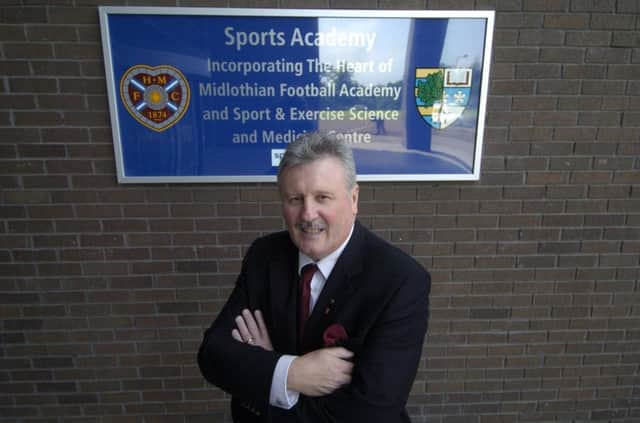Chris Robinson helps Coventry back to Ricoh Arena


In one of the most ironic football news stories of the year, Robinson led the negotiations for stadium owner Arena Coventry Limited (ACL) as it came to an amicable agreement with the Midlands club which will allow Coventry to play their home fixtures at the ground for the first time since August 2013.
It comes nearly ten years after Hearts fans celebrated Robinson’s departure from Tynecastle. The majority shareholder had planned to wipe away the club’s £20 million debt by selling the ground and moving Hearts to Murrayfield where they would have paid rent to the Scottish Rugby Union.
Advertisement
Hide AdAdvertisement
Hide AdIt was a plan he stubbornly stuck to despite the potential ramifications it could have had for Hearts who would have no longer owned a stadium – drawing obvious parallels to the situation Coventry have found themselves in. Robinson has been out of football since selling his shareholding to Vladimir Romanov, although he has remained a regular in the directors’ box at Hearts games.
Coventry moved out last summer after the club’s ownership company Sisu fell out with ACL over a rent dispute. For the entire 2013-14 season they played their “home” matches 34 miles away from Coventry at Northampton’s Sixfield Stadium, with attendances plummeting below an average of 3,000 as supporters staged a season-long boycott. Jan Mokrzycki of the Sky Blue Trust expressed his satisfaction that the team could return to their home town.
“It is a victory for common sense and the power the supporters can have when they are united,” said Mokrzycki.
“It’s a good day all round and now all we want to do is get behind the team. It is almost like a new beginning.”
Robinson, the independent chairman of ACL – a position he has held since February – said: “The focus now is on the future and trying to get the Arena as busy as possible and try and deliver a great matchday experience for the supporters.”
In an interview with BBC Coventry, he added: “The Ricoh Arena is a beautiful venue built for, essentially, a Premiership football club and it’s the home of Coventry City.
“For me it’s a great tragedy not to see them playing there.”
The Hearts connection is strengthened further by the fact that Coventry are managed by Steven Pressley, the Gorgie club’s captain during much of Robinson’s tenure at Tynecastle
Advertisement
Hide AdAdvertisement
Hide AdThe stadium row involving the English club started when Sisu fell behind on their rent payments for tenancy in a ground that was built by council funded money in 2005.
Negotiations between the two parties were becoming increasingly hostile and bitter until a couple of new faces sat round the bargaining table: Coventry’s development director Steve Waggott on one side, and Robinson on the other. Before any agreement could be reached, however, there was still the business of a High Court battle between Sisu and the Coventry City Council and a Football League inquiry into the withheld rent.
Unusually, bad news for the owners in both those instances was good news for the fans since it undermined Sisu’s stance. The High Court voted in favour of the council funding ACL with more money to stave off financial problems, and the Football League ordered that they pay £471,000 of rent owed.
Robinson had previously stated his wish that Coventry remain at the Ricoh Arena, calling it “a great tragedy” that they were not playing there.
With a different set of circumstances and cooler heads doing the talking, a two-year tenancy agreement was reached with the club possessing an option for a further two years.
For the club it remains a short-term fix on a long-term problem. They will receive only a share of matchday food sales and are not permitted to move the club shop back into the grounds.
Waggott reinforced the need to find a permanent home for Coventry, whether it is at the Ricoh or somewhere else. “In the modern game every football club wants to have as many diversified revenue streams as possible and to get that you have to own the stadium or have the rights to the stadium all year,” said Waggott.
“This is a great step forward but it is the first step. The next steps have got to be moving towards us having our own stadium.”
Their first game back at the ground will come against Gillingham on 5 September.